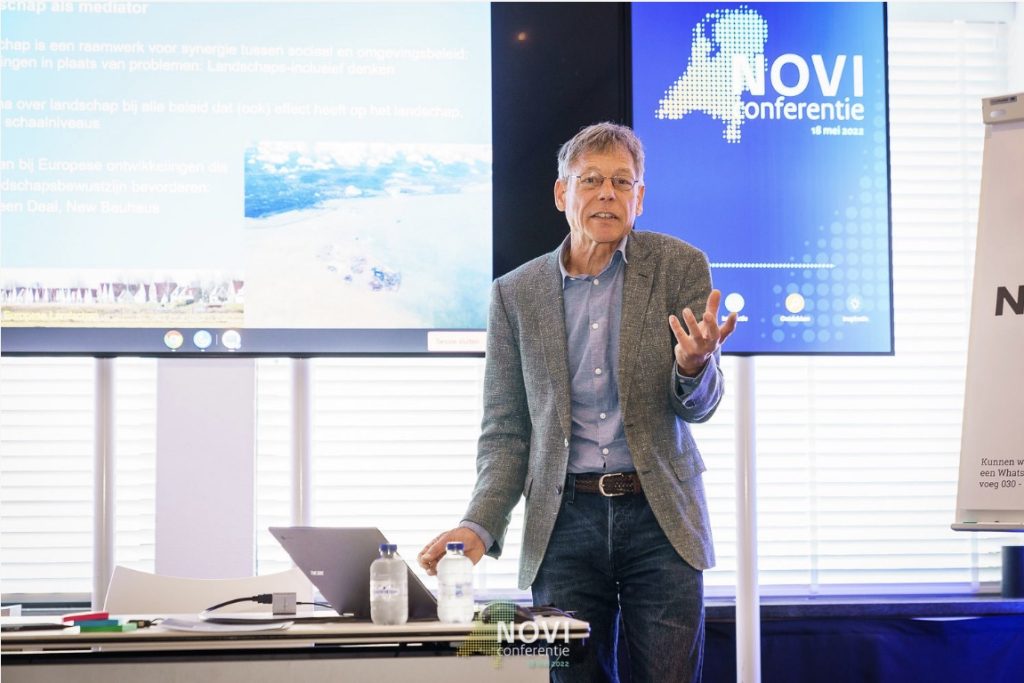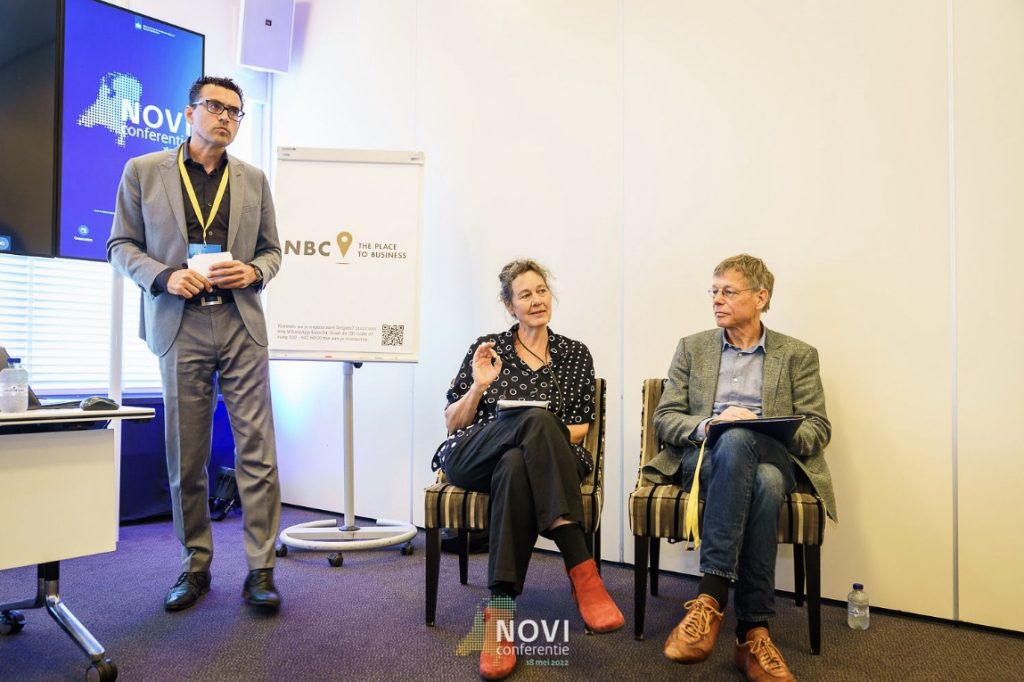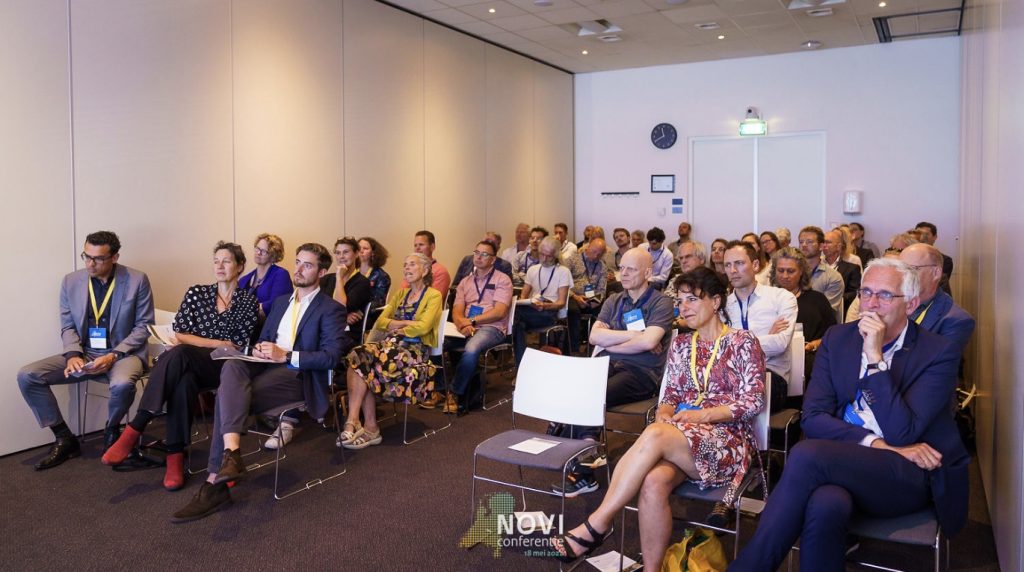The UNISCAPE Manifesto on the Future of the European Landscape was introduced on 18 May by Bas Pedroli during a special session of the 2022 Conference on the National Spatial Vision for the Netherlands (NOVI). The Manifesto was presented to the Ministry of the Interior and Kingdom Relations, and the Ministry of Education, Culture and Science.
In 2000, the European Landscape Convention (ELC) was launched in Florence. Five years later, the treaty was ratified by the Netherlands. Twenty-one years later, the Manifesto for the Future of European Landscapes was presented, again in Florence. The Manifesto was written by UNISCAPE, the network of universities committed to the ELC.

On behalf of UNISCAPE, dr. Bas Pedroli (Wageningen University / JustLandscape) now introduces the Manifesto to an audience of more than 40 policy makers and officials of various authorities. The current treaty is in practice insufficiently used to face the current challenges in spatial planning in Europe. For this reason, the Manifesto has been drafted as a new impulse for the ELC. Pedroli presents his appeal for the future on the basis of three action lines.
- Making Europe a Place for everyone; Pedroli explains that place-making is important for support for landscape policy and that newcomers must also feel at home and be able to identify with the landscape. It is also essential to recognize the irreplaceable values of landscape.
- Landscape as mediator; The landscape can serve as an important mediator in all the major challenges that come our way. Landscape is not the problem, but the solution. Pedroli calls for ‘landscape-inclusive’ thinking and also for a landscape action plan in coordination with the European Union.
- Landscape Knowledge; More in-depth knowledge of the landscape is needed to better engage and care for the future of the European landscape.
Read the full Manifesto here.
After the presentation, Jannemarie de Jonge (National Adviser for the Physical Living Environment), Henk Baas (Head of the Landscape Department, National Cultural Heritage Agency) and Bas Pedroli, led by David van Zelm van Eldik (Programme leader OUR Landscape, Ministry of the Interior and Kingdom Relations), have a vivid debate about the future of the landscape based on two propositions.

‘The necessary speed of change, given the major reconstruction of the Netherlands, is at odds with Citizen Participation’
Jannemarie de Jonge indicates that it is important to understand how the landscape works. There is a difference between space and place. Place-making is about the landscape, about identity and the connection that citizens have with the landscape. Henk Baas indicated that it is important that people know that the landscape is also dynamic and not static. It is therefore inspiring to tell the story of the landscape, and to get the people involved with that story. Bas Pedroli added that it is essential to involve citizens, but that we do not have the right tools for this at the moment. However, there are plenty of examples where citizen participation has actually led to acceleration of a project.
‘The belief in making the Landscape, such as manipulating the water and soil system, is in our DNA’
Henk started with a statement by the well-known landscape architect Adriaan Geuze (West8), who says: ‘The only thing we can do well in the Netherlands is to design a landscape and then visualise it in a painting.’ In some places we will have to let go of that ‘making’, especially in the lower part of the Netherlands. Jannemarie adds that it is important to really look further into the future. The landscape is not only the result of human actions, but also the source of our actions. Every investment in our landscape must therefore be based on climate adaptation and care for the environment and landscape values. Bas believes that we should focus on what we can do, namely shaping the landscape. Doing nothing is also a conscious choice.
At the end of the session, the Manifesto was handed over to Rosemarie Bastianen (Program Director ‘Mooi Nederland’, Ministry of the Interior) and Arjan de Zeeuw (Director Knowledge, Cultural Heritage Agency of the Netherlands). They showed great appreciation for the initiative and promised to pay due attention to the Manifesto in their respective policy areas.
